The Midwest Big Data Innovation Hub Learning Innovation Fellows Program, housed at the University of Michigan School for Environment and Sustainability, enables teams to form for work toward better understanding of the intersections of the Hub’s “Cyberinfrastructure and Data Sharing” and “Data Science Education and Workforce Development” themes.
Our fellows work with faculty and teaching staff to create innovative interactive data analysis activities that can nest within sustainability science case studies. They design, prototype, and pilot these features in classrooms within the MBDH network. The program leverages talent and resources from two existing, open-source science learning environments. Gala (www.learngala.com) is a community-based, responsively designed sustainability science learning environment. Quantitative Undergraduate Biology Education and Synthesis (QUBESHub, or Qu) is a virtual center for faculty development and open educational resource sharing (https://qubeshub.org) that has had long-term support from NSF, formalizing and professionalizing open educational resources.
Through a series of virtual “Networkshops,” we connect undergraduate data science majors, graduate/professional students, faculty, and professionals. We can thus be inclusive, incorporating into classrooms problem-driven, data-rich material that speaks to lived infrastructural and environmental challenges from a range of communities across our region, and beyond. The team includes the following:
Leadership—
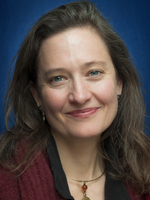
Rebecca Hardin (PI) is an anthropologist and Associate Professor at the University of Michigan School for Environment and Sustainability (UMSEAS), where she leads collaborations on the open-source, open-access learning platform Gala (www.learngala.com) and research group on Digital Justice. Rebecca also coordinates the Environmental Justice Field of Specialization and related Certificate program at UMSEAS.
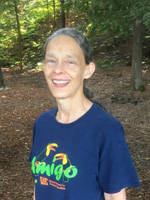
Ann E. Russell (Co-PI) is an ecosystems ecologist, with special expertise in the biogeochemistry of tropical ecosystems. She is an Associate Adjunct Professor in the Department of Natural Resource Ecology and Management at Iowa State University, and PI of the NSF Research Collaborative network ALIVE: Authentic Learning in Virtual Environments.
M. Drew Lamar (Co-PI) is a mathematician and Associate Professor of Biology at William & Mary. His teaching and research are highly interdisciplinary in nature, using techniques and concepts from mathematics, statistics, biology, and computational sciences. Drew is Co-PI and Director of Cyberinfrastructure for the Quantitative Undergraduate Biology Education and Synthesis (QUBES) virtual center, with an interest and passion in open-source software development, quantitative biology education, and development of education gateways.

Ed Waisanen (Program Manager) is Program and Platform Lead for Gala (learngala.com). He has a master’s degree in Natural Resources and Environment from the University of Michigan, with a focus in Environmental Informatics and a background in multimedia production. Ed is focused on developing tools and communities that emphasize curation, open exchange, and narrative approaches to deepen learning.
Teams—
Data Learning for Restoration Ecology
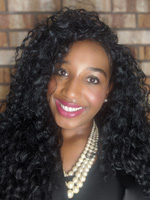
Kyra Hull (Fellow) is a native of Grand Rapids, Michigan, and a first-year graduate student at Grand Valley State University, studying Biostatistics. Kyra is working on the following case about forest restoration, which is bilingual (Spanish and English versions): https://www.learngala.com/cases/a3224235-cdc0-44fc-a98b-46735dfef6c9
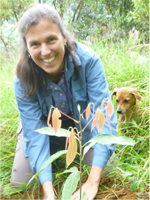
Karen Holl (Faculty Advisor) is a Professor of Environmental Studies at the University of California, Santa Cruz. Her research focuses on understanding how local and landscape-scale processes affect ecosystem recovery from human disturbance and using this information to restore damaged ecosystems. She advises numerous public and private agencies on land management and restoration; recently, she has been working to improve outcomes of the effort of the many large-scale tree-growing campaigns.
Data Learning to Address Groundwater Contamination
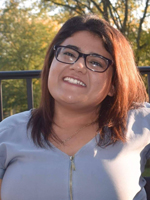
Saba Ibraheem (Fellow) is a second-year Health Informatics student at the University of Michigan, focusing on data analytics and research in health care. Saba is working on the following case, which is bilingual (English and French versions): https://www.learngala.com/cases/dioxane-plume
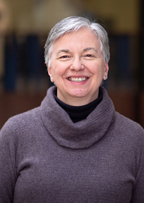
Rita Loch-Caruso (Faculty Advisor) is a toxicologist in the Department of Environmental Health Sciences at the University of Michigan School of Public Health, with a research focus in female reproductive toxicology and, in particular, mechanisms of toxicity related to adverse pregnancy outcomes such as premature birth.
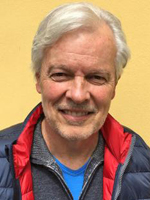
Alan Burton (Faculty Advisor) is a Professor at the School for Environment and Sustainability and the Department of Earth and Environmental Sciences at the University of Michigan. His research focuses on sediment and stormwater contaminants and understanding contaminant bioavailability processes, effects, and ecological risk at multiple trophic levels. He is also a specialist in ranking stressor importance in human-dominated watersheds and coastal areas.
Data Learning in Livestock Ecologies
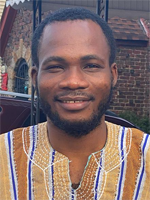
Daniel Iddrisu (Fellow) is a second-year student in Masters in International and Regional Studies, with a specialization in Africa, at the University of Michigan. He earned a BA degree in Integrated Community Development from the University for Development Studies, Tamale, Ghana. His research focuses on health, development, gender, and environmental health. The case he is working on takes place on the Greek Island of Naxos, but comprises skills for modeling and analyzing human/livestock interactions more broadly: https://www.learngala.com/cases/livestock-grazing
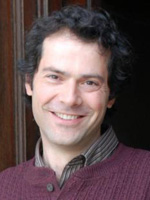
Johannes Foufopoulos (Faculty Advisor) is an Associate Professor at University of Michigan’s School for Environment and Sustainability, who focuses his lab research on fundamental conservation biology questions and on issues related to the ecology and evolution of infectious diseases. Major research projects examine how habitat fragmentation, invasive organisms, and global climate change result in species extinction.
Data Learning on Safari
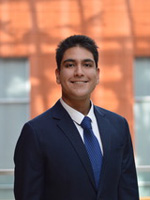
Rahul Agrawal Bejarano (Fellow) has a background in computer science and he is currently working on a master’s degree at the University of Michigan School of Environment and Sustainability, with a concentration in Sustainable Systems. Rahul uses data from a diverse range of sources to shed light on today’s environmental challenges and develop innovative solutions, and is working on identifying climate-related vulnerabilities to our supply chains. He is working on this case, about the interactions of various wildlife species in the Serengeti: https://www.learngala.com/magic_link?key=oOTYOXyDRpmY_yM4AFlnXQ
Charles Willis (Faculty Advisor) is a Teaching Assistant Professor, Biology Teaching and Learning at the University of Minnesota. He is currently interested in the research and development of pedagogy practices for non-major biology students. In particular, he is focused on studying student-student and instructor-student feedback in online spaces. His research is also concerned with understanding how changing environments shape plant diversity on both evolutionary and ecological time scales. Currently, he is focused on using historical specimen data to study how historic climate change (over the past century) has impacted plant phenology and diversity across North America.
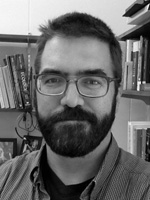
Jeffrey A. Klemens (Faculty Advisor) is an Assistant Professor of Biology at Thomas Jefferson University, where he serves as program director for the undergraduate biology curriculum. His current research activities are focused on the use of agent-based models to describe habitat use by organisms in the urban environment and the role of active learning in science education, particularly the use of systems thinking and other modeling techniques to improve student understanding of complex phenomena.
Data Learning in Detroit’s Eastern Market

Ghalia Ezzedine (Fellow) is a second-year master’s student studying Health Informatics. She is interested in leveraging data and digital tools to improve population health. In her free time, she likes to try new recipes, work out, and occasionally jump off a bridge or airplane. She chose this case study because of her interest in nutrition, and the shift in foods available at this iconic marketplace: https://www.learngala.com/cases/2b92db37-de87-4321-a531-510dea225189
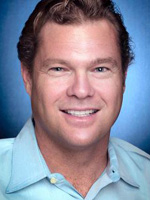
Josh Newell (Faculty Advisor) is an Associate Professor in the School for Environment and Sustainability at the University of Michigan. He is a broadly trained human-environment geographer, whose research focuses on questions related to urban sustainability, resource consumption, and environmental and social justice. His research approach is often multiscalar and integrative and, in addition to theory and method found in geography and urban planning, he draws upon principles and tools of industrial ecology and spatial analysis.
